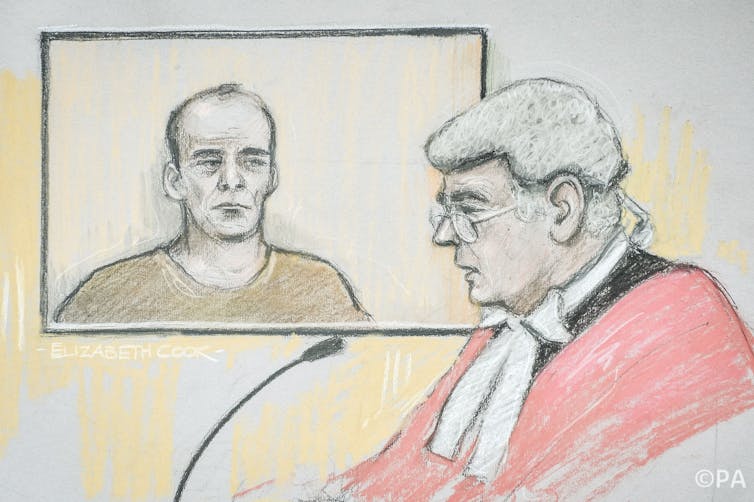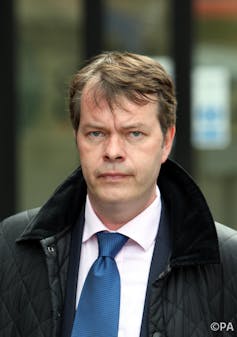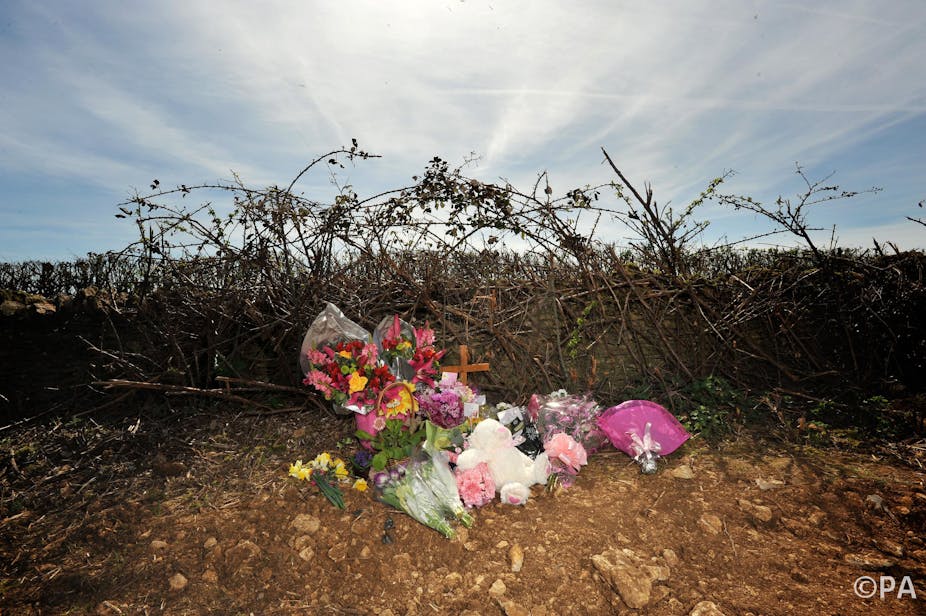The conviction of a former taxi driver from Swindon, England for the murder of 20-year-old Becky Godden has, it is hoped, finally brought some closure to her family. They have waited many years to see her killer face justice.
Christopher Halliwell, 52, is already serving a life sentence for the murder of Sian O’ Callaghan. But he nearly escaped trial for the death of Gooden when key evidence was excluded due to the conduct of the leading investigator, Detective Superintendent Steve Fulcher.
Godden disappeared in 2003, but it was not until March 2011, when Sian O'Callaghan also went missing, that Halliwell’s involvement was discovered. The police established that O'Callaghan was last seen getting into Halliwell’s taxi, and thinking she might still be alive, followed Halliwell in the hope he would lead them to her. But when his behaviour led the surveillance team to conclude he was a suicide risk, the decision was made to arrest him.
The powers of the police when arresting and interviewing are governed – with some emergency exceptions – by Codes of Practice issued under the Police and Criminal Evidence Act 1984 (PACE). PACE requires the police to ensure that suspects are cautioned before they are interviewed (tape recorded, at a police station) and provided with legal advice.
When police fail to comply with the codes, a defendant may challenge the admissibility of the evidence collected as a result of these breaches. If a defendant is said to have confessed, but asserts that the confession was obtained by oppression, the prosecution must prove that oppression did not take place.
Additionally, under Section 78 of PACE, if the court believes evidence has been obtained in circumstances which would have an “adverse effect on the fairness of proceedings” the court must exclude the evidence. A judge considering such an argument must look at the flagrancy of the breach of any code of practice and the likely impact on the evidence.
In Halliwell’s case, it had been agreed by officers that on arrest over the disappearance of O'Callaghan, an urgent interview could be conducted away from the police station, because of the genuine hope her life could still be saved.

The arresting officers cautioned Halliwell and immediately asked him about O'Callaghan’s disappearance. But Halliwell was not willing to co-operate. He demanded a solicitor and asked to be taken to the police station. It was at this point that Detective Superintendent Fulcher instructed the officers to take him instead to a rural location he believed to be significant.
Fulcher met Halliwell there and continued to question him, offering him cigarettes, trying to get him to talk. Fulcher later admitted in court he knew this to be a breach of PACE but argued that the urgency of possibly saving Ms O'Callaghan’s life justified his actions.
Eventually the suspect agreed to take officers to the location of Ms O'Callaghan’s dead body. On the way back to the police station, he asked to talk further and after stopping off in a secluded lane, asked Fulcher if he “wanted another one”.
Police then drove him to a spot in Gloucestershire where Godden’s remains were discovered, eight years after she went missing. But Halliwell then refused to answer any more questions, and police found no other evidence linking him to Godden’s death.
Halliwell was later charged with both murders but at Bristol Crown Court the defence applied for all the evidence collected between the time of arrest and arrival at the police station to be excluded.
In a detailed ruling, Mrs Justice Cox agreed with their arguments. She ruled that although Fulcher had made a “moral judgment” and that though his anxieties were “fully understandable”, there were “substantial breaches of the codes in circumstances deliberately designed to persuade the defendant to speak”.
Crime solved
The judge was not satisfied that the confession was not obtained by means of oppression and believed it would have an adverse impact on the fairness of proceedings to admit the evidence in respect of Godden. There was enough evidence for O'Callaghan’s murder for the defendant to admit his guilt, but the prosecution were forced to withdraw the second murder charge.

Aside from the implications for criminal justice, Fulcher’s decision had serious consequences for his own life. He was charged with misconduct, resigned from the police and is now working as a security consultant in Somalia. He has at least been vocally supported by Godden’s mother, who publicly thanked him for what he did.
Then, in the years that followed, Fulcher’s former colleagues were able to amass enough evidence for the matter to be retried and the defendant convicted.
But the case illustrates the difficult decisions that police face in conducting sensitive operations. Many would agree that by finding Godden’s remains Fulcher’s actions were vindicated, as the former detective does. Few will have sympathy for any legal hardship suffered by Halliwell.
The codes of practice exist to protect the public from police oppression, but also to protect the police from allegations of misconduct and if the courts do not scrutinise their operation, we risk tyranny.

